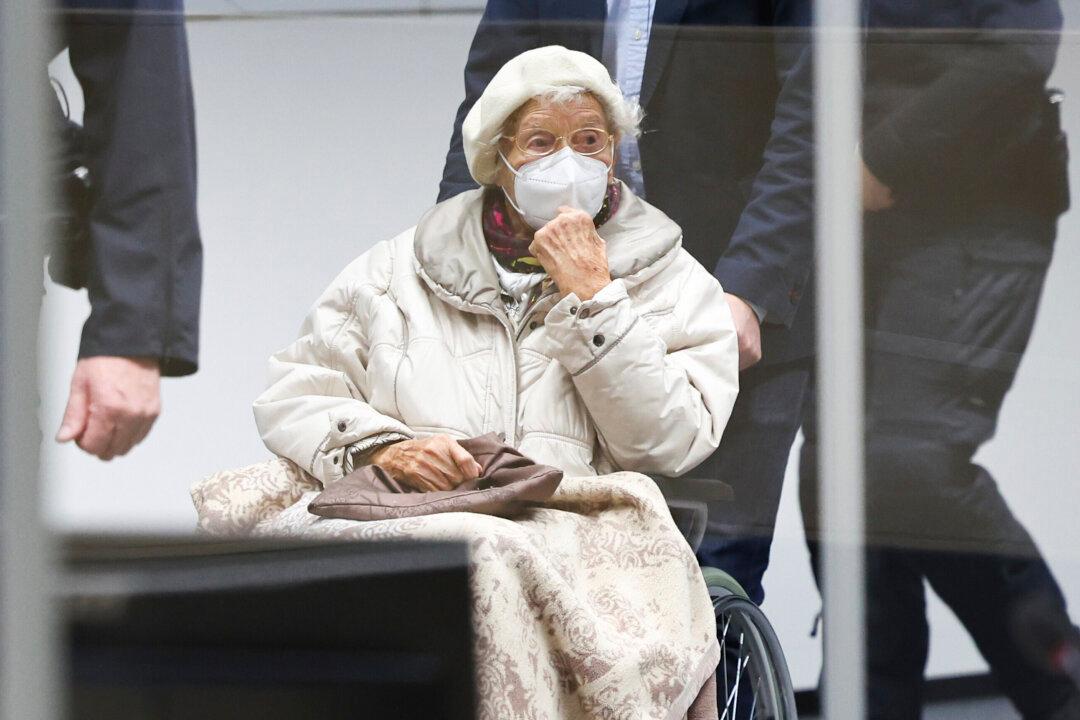A German court rejected an appeal by a 99-year-old former secretary to an SS concentration camp commandant on Aug. 20 over her conviction of being an accessory to more than 10,000 murders during World War II.
The Federal Court of Justice upheld the conviction of Irmgard Furchner, who was given a two-year suspended sentence by a state court in Itzehoe, northern Germany, in December 2022.





